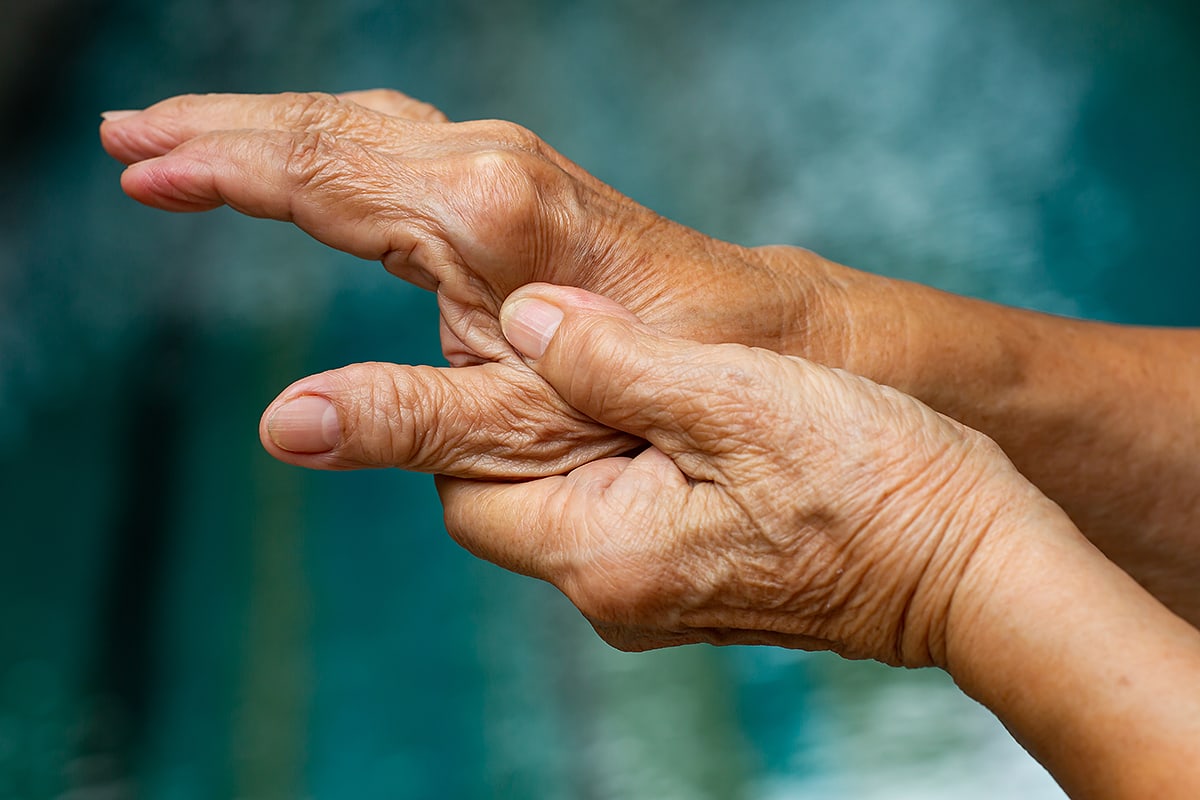Introduction
Osteoarthritis of the first carpometacarpal joint (base of thumb arthritis) is the most common kind of arthritis in the hand. The thumb is important in most aspects of hand function, and actions like gripping and pinching places very large forces across this joint.

Causes
Although some cases of base of thumb arthritis are post traumatic, particularly when it affects young people, most are degenerative and have no specific cause. People with widespread osteoarthritis or an inflammatory arthritis are particularly prone to developing joint problems in their base of thumb.
Symptoms
The main and most important symptom is pain. The pain is felt not only at the base of the thumb bus can be through the whole thumb or the side of the hand and wrist. It is generally made worse by movement, and especially activities involving a strong grip or pinch. The pain can often be worse in the morning. As the condition becomes more advanced, the range of movement of the thumb will also become reduced.
Tests
In most cases a plain x-ray is the only investigation required. In special or unusual cases, more advanced imaging like CT or MRI may be helpful. As the condition can co-exist with other hand problems there may be additional tests like nerve conduction studies that are indicated.
Diagnosis
Although arthritis is often diagnosed on x-ray, physical examination is the most important part of the evaluation. There is a poor correlation between the severity of x-ray changes and the symptoms experienced by patients, and so a careful clinical examination is crucial to an accurate diagnosis.
